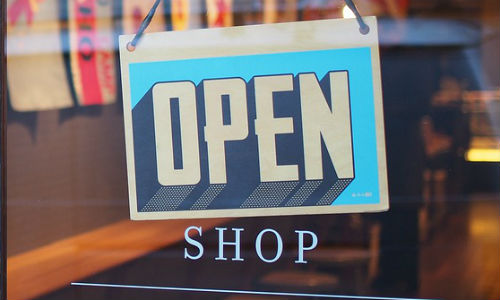The day after Thanksgiving is an almost-official holiday devoted to spending money, primarily at large corporate-owned businesses. That doesn’t sit well with a lot of people. Small Business Saturday is a reaction to the Black Friday juggernaut. Devoted to patronizing locally owned brick-and-mortar businesses, it’s been growing in popularity over the last seven years. In 2015, people spent more than $16 billion in small businesses on that day.
Ironically, Small Business Saturday is the product of a major multinational corporation, American Express, which first promoted it in a 2011 advertising campaign. (In fact, Amex owns the Small Business Saturday trademark.) Some small business owners are critical of a financial services company profiting from what appears to be a grassroots, feel-good endeavor.
It’s not hard to come up with local stories for this year’s Small Business Saturday, Nov. 25th. Here are some unique angles.
Look at the government support
The Small Business Administration is the federal organization devoted to helping small businesses. It defines small businesses through tables that list revenue and staffing levels, since the threshold for “small business” is different for each industry. All sorts of businesses benefit from the SBA; their services assist companies ranging from hot dog stands to manufacturing outfits.
The SBA provides a lot of resources to retailers to increase sales on Small Business Saturday, including marketing advice, posters and materials, and social media support. Find out if local businesses in your community are making use of this—or any—SBA services. Have these local businesses taken advantage of the government support? If so, how has it helped them improve their holiday sales?
Profile an employee
People write profile pieces about small business owners all the time, but small business employees are rarely profiled. Whey would someone forego the perks of working for a larger company, such as job security, benefits, promotion potential and even higher pay? What is it about working for a small business that appeals to them? Is it the environment, the responsibility, the commute?
Report the upside of independence
Many business owners launch an enterprise in order not to be beholden to a boss. They can do more for their customers, they can sell what they want, charge what they want and spend their revenue as they see fit without having a district manager pushing corporate goals on them. Since they’re often not accountable to shareholders and have few of the government regulations directly at large corporations, they are able to move quickly.
Talk to local small business owners in your community. Why do they do what they do? How much more flexible are they than a corporate peer? What are some of the risks and benefits of being a small business owner?










